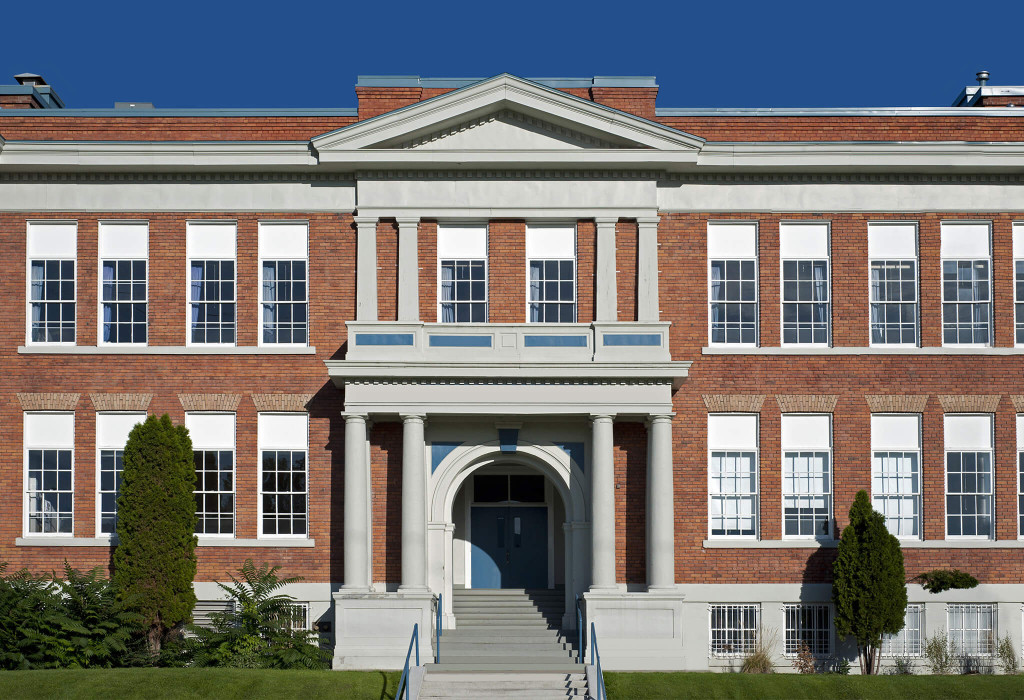Educational Claims
There are a myriad of things to consider in the wake of major property damage to your school or educational facility. Your priorities are your students and teachers, addressing their needs and finding temporary facilities and methods to stay open. Handling the insurance claim is an extra burden unless you have claim professionals on your side. Our licensed public adjusters are claim advocates for educational institutions. We manage every step of the process to secure a fair and just settlement.
-
1
Your school just suffered serious damage and you are wondering what to do next.
-
2
You call your insurance company and wait for an adjuster to come out, hoping that they will have your best interests at heart. After all, they accepted your premium for years in a very nice way. Now you expect that they will "do the right thing."
-
3
You will soon discover that you have moved from the asset side of your insurance company's ledger (you paying your premiums on time) to the liability side of their ledger (they need to pay you for your damages). Often, the money they owe you now will far exceed any premium payment you paid or would pay in the future.
We Can Help
Knowing everything you possibly can about the "fine print" of your insurance policy before you have any substantive dialogue with your insurer is an absolute necessity. Know what you are covered for and how to claim it. What you say to your insurance company's adjuster and how you say it can make a dramatic difference in how much you get paid. The more you know, the better the results.
Educational Factors To Consider
Be sure to understand each of the following factors before engaging with the insurance company. Knowledge is the key to a successful claim outcome.
- What is my broker's/agent’s role?
- Does the adjuster work for us or the insurance company? Why they can't work for both. Conflict.
- Does the insurance company pay for professionals necessary to evaluate my claim? Are they working for me or them?
- Can I compensate employees who help with cleaning or restoration?
- Is the insurance company using an independent building or equipment consultant to prepare a bid? Who are these consultants? Who are they working for? Do they only work for insurance companies?
- How quickly can I get started rebuilding?
- Does my risk manager have the requisite skill sets to negotiate a large property claim?
- JPA's and Pools. Do they really have my district's best interest in mind?
- How does my policy address increased costs due to new codes? If my coverage is limited, what can I do about it?
- Temporary facilities. Portables. Hardscape. Temporary or permanent? How presenting my story can affect my recovery. Do I know my policy provisions?
- Do we have the resources in-house to address students' and teachers’ needs and get the most from the insurance company?
- Typical school inventories can be 5,000 items or more. They need to have ages, source documents to support replacement prices, and condition coding to secure the settlement. What is the time commitment necessary to prepare the inventory?
- Will the insurance company pay for a construction manager?
- What is the difference between a schedule of values and a schedule of limits?
- Employees' personal property and/or tools - How does the policy respond?
- What does Title 24 and handicap access mean to me and my claim?
- What are extra expenses? What can be included? Can I use extra expenses to offset shortfalls in property coverages?
- Is there coinsurance in my policy? What does it mean?
- What are expediting expenses? How do they differ from extra expenses?
- Temporary locations? What happens at the end of my claim?
- How does the event affect volunteers?
- How does the event affect donations?
- Utilizing extra expense coverage to secure "E-Space" for classrooms off-campus.
- Can I compensate employees or volunteers who help with cleaning or restoration?
Educational References
In addition to the 5,000+ references on our list, here are some well-known names in the education industry we have helped.
- Almaden Country School
- American Legion Santa Ana Post 131
- Baylor College of Medicine
- Carl & Patricia Boutte
- The Brandeis Bardin Institute
- Robert Buchser
- University of California, Davis
- Catahoula Parish School Board
- Colby College
- Concordia Parish School Board
- Dallas Public Schools
- Dean College
- Delta Sigma Phi / Clarkson University
- Dos Palos High School
- Dennis P. Flynn
- Fresno Unified School District
- Terry Geirman & Karen Marshall
- Stanislav Grof & Christina Grof
- Gunn High School Palo Alto Unified School District
- Hannibal LaGrange College
- Harbor Branch Oceanographic Institution
- Hoover Middle School/San Jose Unified/Gerald Matranga, Assoc. Supt
- David Kirp
- Jack McAboy
- Modesto City Schools
- Mohawk Central School
- Mora Independent Schools
-
Newbury College
- Occidental College
- Oregon City Public Schools
- Palo Alto High School Palo Alto Unified School District
- Ashleigh Reynolds
- Soon K. Rho
- Tallulah Junior High School Madison Parish School Board
- Theta Iota Chapter of Kappa Sigma
- Westside Jewish Community Center
- Woodburn High School
The Difference Public Adjusters Make
We work exclusively for YOU, not the insurance company. Our insurance professionals have managed and negotiated thousands of claims for nearly every type of natural and man-made disaster. Local in our approach, we have over forty offices across the U.S. and Canada, and an unmatched network of expert resources to efficiently mobilize and be at your side.

